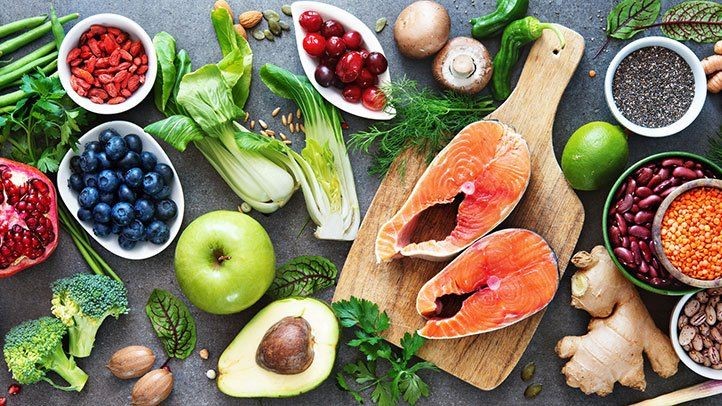
Food and Mood: Learn How Food Influences Mental Wellbeing, Brain Health, and Mood
Before scarfing down a burger and fries, you might want to think about how that food could affect your mood. Studies led by Professor Felice Jacka (Professor of Nutritional Psychiatry, Director of the Food & Mood Centre at Deakin University) show that people who consume drinks and foods high in sugar, sodium and ultra-processing have a higher risk of developing different mental health conditions.
Choosing a healthy diet can help you boost your mood, brain health, and overall mental wellbeing.
How Diet, Mood and Anxiety Are Linked
According to Professor Jacka, about half of Australians will likely experience a mental health issue at some point in their lives. Anxiety and mood disorders are increasing in our young population globally, which can manifest in long term poorer social, economic and criminal outcomes in adulthood.
She says that they have new data from the ABS that shows that nearly all Australians fail to meet their basic dietary guidelines, especially focusing on the recommended five or six servings of vegetables each day. This has significant implications for physical health, but the research also indicates that it’s important for mental and brain health too.
A recent study indicated that those with a diet loaded with vegetables, fish, nuts, seeds, legumes and fruit had bigger hippocampi, and diets filled with takeaway and processed foods had lower hippocampi.
Who’s at Risk?
Felice Jacka claims that a person’s diet is central to their brain health and power throughout life. Her team has examined over 23,000 mothers and children in Norway to show that mothers with unhealthy diets during pregnancy had children with more mental-health-related problems in their first years.
Eat to Boost Your Mood
Professor Jacka’s research shows that mood-boosting foods include those from the anti-inflammatory and protective Mediterranean Diet:
- Vegetables
- Legumes such as black beans, chickpeas
- Fruits
- Nuts
- Wholegrains such as brown rice, oats
- Seeds
- Foods high in omega-3s such as sardines and wild salmon
- Extra Virgin Olive Oil
Whole and unprocessed diets with healthy proteins and fats are associated with better mental and cognitive health. Those foods are the foundation and contain thousands of nutrients required for the brain and body to function properly. She claims that these diets also have high fibre contents, which is crucial for the gut microbiota.
Overall, the gut is the driver for health and informs brain health, so a high fibre intake is crucial.
Invest in Your Nutrition
Professor Jacka proposes that the government should limit the marketing and availability of poor food products to Australians. And knowledge is power. People can re-learn and feel inspired to shop smart and cook healthy meals at home. It’s crucial for their mental and physical health and living a longer, better quality of life.
Professor Felice Jacka is the OAM Director of the Food and Mood Centre, Deakin University Australia and President of the International Society for Nutritional Psychiatry Research (SNPR) https://foodandmoodcentre.com.au/
Recent Posts
6 Tips for a Healthy Hanukkah
Hanukkah is a time of celebration, lighting the menorah, enjoying meals with family and friends, playing traditional games and singing songs. Over recent years, we have learnt how to make
Red Wine Hanukkah Brisket
Red Wine Hanukkah Brisket Serves 6-8 A traditional Hanukkah favourite! Enjoy this slow cooked dish with leafy and colourful side salads for
Sweet Potato and Vegetable Latkes with a Lemony Herb Yoghurt Sauce
We have upgraded the traditional white potato latkes for a healthier, more nutritious version. Sweet potatoes are a fantastic source of beta-carotene, a precursor to vitamin A. Vitamin A is
Maccabi LIFE Kitchen – One Pan Greek Salmon
Discover why the Mediterranean Diet is so popular with this healthy one pan Greek salmon with roasted peppers, cherry tomatoes, sweet potatoes, olives and medicinal herbs. The thousands of nutrients





